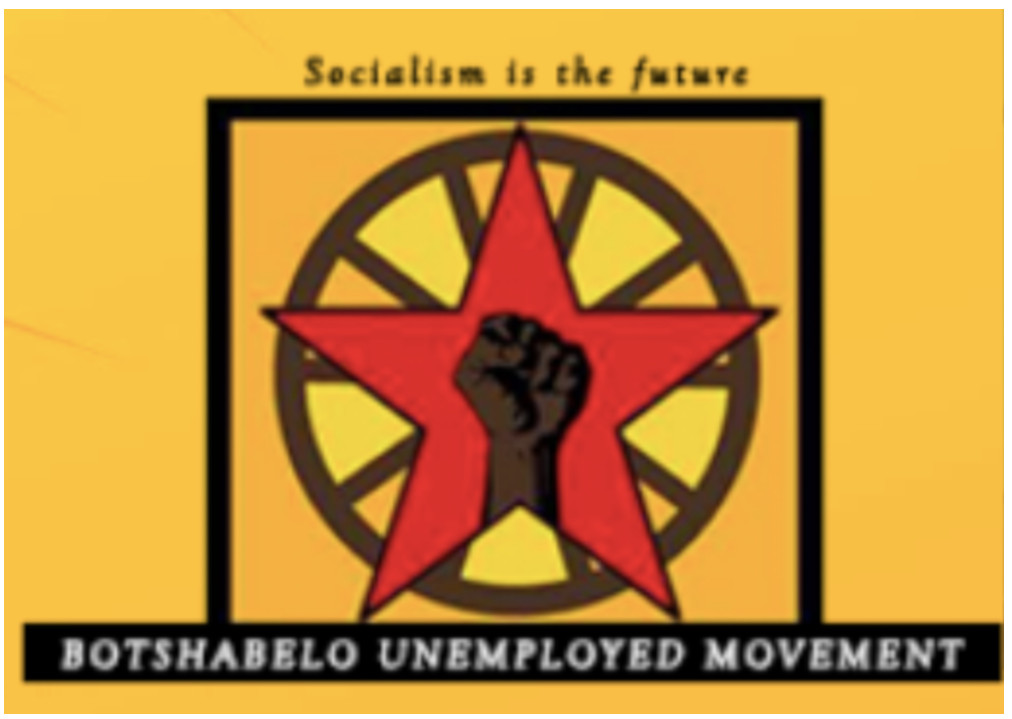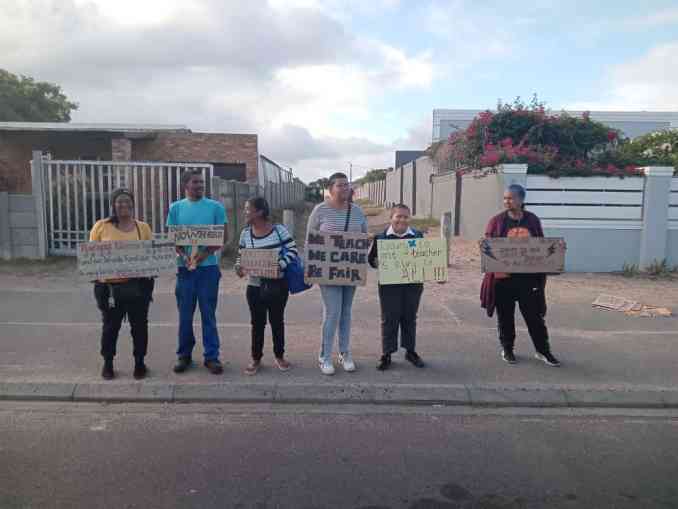Students, staff and alumni gathered to protest outside the Great Hall at Wits. Photo: Ihsaan Haffejee
▶️ read the original post on GroundUp click here
In this report by Ihsaan Haffejee from GroundUp Wits University witnessed a gathering of students, staff, and alumni demanding the institution take a public stance on the Gaza war. The protest held on the steps of the Great Hall, underscored the urgency for Wits to address the ongoing humanitarian crisis. Muzzammil Tayob of the Wits Palestine Solidarity Committee emphasized the university’s silence despite seven months of genocide in Gaza, urging for immediate action including an academic boycott of apartheid Israel.
A letter directed at the vice chancellor and council chairperson highlighted Wits’ complicity through its ties with Israeli entities and the employment of a former IDF officer as a professor. The demand for transparency regarding these relationships, along with a call for solidarity with Palestine and the adoption of BDS principles, echoed the protesters’ plea for accountability and ethical engagement.
While the university’s strategic partnerships office asserted no new agreements with Israeli universities were made in the past eight years, the protesters pressed for a comprehensive disclosure of all Israel-related affiliations. Vice Chancellor Zeblon Vilakazi’s defense of academic freedom in engagement decisions was met with skepticism, as Tara Weinberg, a history lecturer, stressed the moral imperative to stand against the destruction of educational institutions in Gaza.
The protesters’ memorandum, outlining five demands including an end to censorship and intimidation of pro-Palestinian activities on campus, reflects a broader call for justice and accountability. Wits senior communications officer Buhle Zuma acknowledged the receipt of the memorandum, promising a review and subsequent response. As the debate continues, the protest embodies a grassroots effort to uphold social justice values and challenge institutional neutrality in the face of humanitarian crises.





